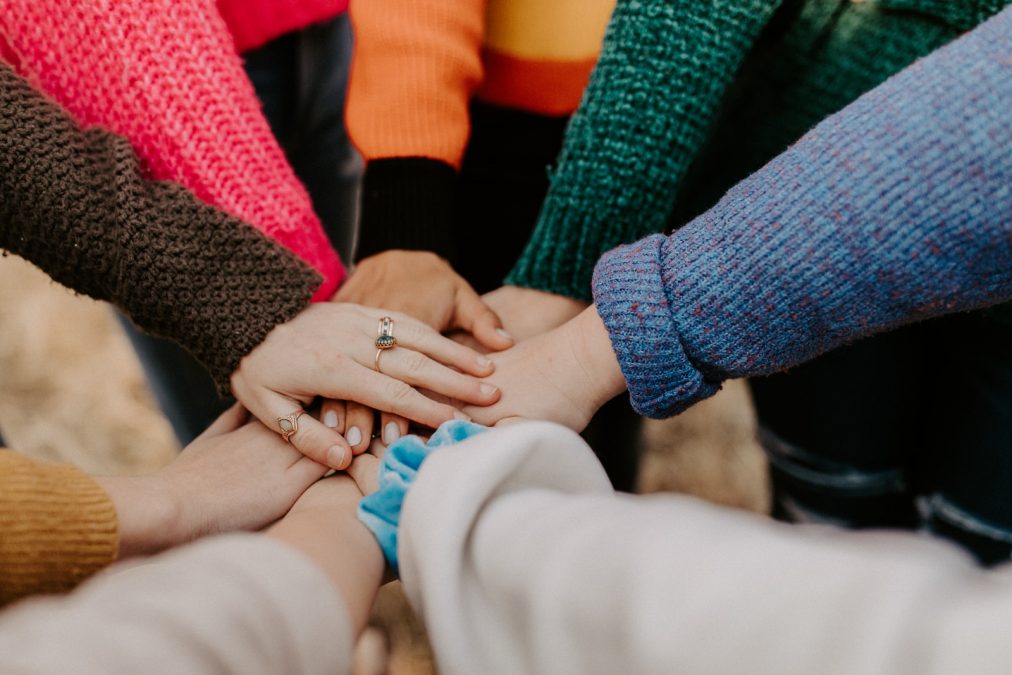
Alison Webster: People, Power and Participation
November 15, 2022
Matt Hancock and the Powers of Horror. Reflections on ‘I’m a celebrity, get me out of here’
November 26, 2022
- Disability (In)justice
We live in a society that offers little justice to disabled people. As we write in At the Gates: Disability, Justice and the Churches, disabled people in the UK are twice as likely to live in poverty as non-disabled people. We are less likely to be employed, and we earn less than those who are not disabled; at the same time, we face staggering extra costs of disability. When we seek financial help, we must deal with a dehumanising benefits system that has been implicated in our deaths. A social care crisis is leaving many disabled people unable to wash, dress or prepare food. And many of us cannot find accessible or safe housing, a situation that led to the deaths of 15 disabled people in the Grenfell Tower disaster, when disabled residents were told to ‘stay put’ and wait for help that never came.
These statistics are just a snapshot of a much broader picture of disability injustice in our society. This is ableism – the system that sees some bodies and minds as valuable, and treats the rest of us as disposable.
Churches should be different. In an ableist society, disabled people hope that Christian communities will be places of solace, refuge and justice. And yet we rarely hear churches speaking out against disability injustice. Instead, in churches with a long history of offering care, disability is more often seen as the focus of pastoral care and charity than an issue of justice. Giving to the ‘needy’ can feel comfortably rewarding, for those in positions of power, but charity creates unequal relationships. Disabled people are more often spoken about than listened to. We may become the focus of ‘inclusion’ outreach projects, designed by those in the centre, but clergy rarely ask us what needs to change before disabled people can be active, participating members and leaders of churches.
In At the Gates, disabled people share answers to that unasked question. The storytellers in this book are longing to be co-creators in Kingdom communities. As they tell stories of all the ways they have been left waiting at the gates, they remind the church of Jesus’s commandment to invite disabled people to the Banquet first (Luke 14). They challenge churches to live out God’s justice for disabled people.
God’s justice is not the world’s justice. It’s far more radical than that. God is on the side of the oppressed, liberation theology tells us. This is the kind of justice that God promises to those who are marginalised: “At that time I will deal with all who oppressed you. I will rescue the lame; I will gather the exiles. I will give them praise and honour in every land where they have suffered shame” (Zeph 3:19, NIV). This is the justice of the Shepherd who leaves his flock of ninety-nine to find a single sheep that has been driven out of the sheep-fold. Jesus was not just on a mission to the marginalised – he became one of the marginalised, refusing power even when it led him to his death. This is not just another way to reframe old, disempowering concepts of charity. God’s radical justice calls us to turn society’s power structures upside-down, so that those of us who have been waiting at the gates can open them wide and transform the church.
That’s the kind of justice that disabled people need from the church.
2. Diversity and our Disabled God
As disability theologian Sharon V. Betcher reminds us, the diversity of the Kingdom is a mark of God’s people. Those who “seem to be weaker are indispensable” to our churches (1 Cor 12:22). Disability is part of God’s vast, heterogenous creation. And yet human beings have devalued God’s diverse creation, in our eagerness to reach a new heaven and a new earth, as eco-theology has shown us. We devalue our own bodies and minds in much the same way. We treat these gifts from God as disposable, waiting to become ‘perfect’ versions of ourselves in heaven, imagining away all physical impairment and neurodiversity. But what is our image of perfection, beyond a socially constructed ideal of bodies and minds that can meet capitalist demands for endless productivity? Christians have a far better model of divine wholeness: the wounded, risen body of Jesus.
This vision of a disabled God, resurrected with his scars, was first shared by disability theologian Nancy L. Eiesland. It’s one of many disabled theologies that our storytellers in ‘At the Gates’ want to tell the church about. Christ’s resurrection body shows us that we’re not just waiting for an upgraded model. Everything we are – body and mind – is made in the image of God, and our uniqueness and diversity will continue into the hereafter. Exactly what that will look like, none of us can know. All we know is that Jesus takes disability to heaven, redeeming it from stigma and oppression. In the process, he points to us – disabled people – and he says, “This creation of mine is good. You are made in the image of God.” Even better, Christ’s resurrected body shows all of us, disabled or not, that our bodies and minds matter, right now. With all their differences. In all our struggles.
A disabled Christ is relevant to us all. He challenges people with non-disabled privilege, calling them to justice and solidarity with those who have been oppressed. When I read James Cone reflecting on the Black Christ, my white privilege comes into sharp focus, as I imagine a Black Jesus on the cross and ask if I would have been one of those who crucified him. A disabled God calls us to repent of our ableism, with just as much power. How can we look at Christ, risen with his wounds, and continue to marginalise disabled people in our churches?
In Kingdom communities, we often speak of how we are all one in Christ (Gal 3:28). But we can’t skip to that happy ending without repentance for ableism in our churches. That repentance will lead to transformed churches, where disabled people can come in through the doors, participate fully in church life, and lead others. We have a model for this kind of transformation – in Jesus. He noticed disabled people before anyone else. He became angry at the injustice they faced, and he allowed them to challenge his ways of doing things. It is time for the church to make room for disabled people’s prophetic leadership, just as Jesus did, welcoming the change we bring.
Where there is injustice for disabled people in churches, it exists because non-disabled people have designed churches around their own needs. So if you’re worrying about the cost of making your building more accessible, it’s worth remembering that you are offering restorative justice to members of a community that may never have been able to enter your church before – because that church was designed to exclude us, from the ground up. Putting that right is worth some resources. At the same time, the disabled people in ‘At the Gates’ are showing the church how little it really costs to become places of disability justice, if they only listen to those of us with lived experience to share.
A church that can repent of the damage it has done to disabled people is a church that will be ready to recognise and benefit from our gifts, not just to treat us as charity cases. From our lived experience of disability, chronic illness and neurodiversity, disabled people have new, anti-ableist insights to share with the church. These prophetic lived theologies have the potential to transform all our thinking about God, the Bible, the church, human diversity and healing. In ‘At the Gates’ we share stories of disabled-led communities modelling new ways to be church together, in interdependence and grace, remembering that Jesus commanded us to invite disabled people to the Banquet first.
Disabled people do not yet have a place at the table, in most churches. We have been left waiting at the church gates, on the edge. Our stories are told by other people; our own voices have not been not heard. But if it took a disabled Christ seriously, the church could be a place of justice for disabled people, and for many others who have been left waiting at the church gates.
With thanks to Sam Wells for some searching questions that inspired this post, to my co-author Emily Richardson for many of the insights here, and to the disabled storytellers who shared their prophetic calls for justice in ‘At the Gates’.
Naomi Lawson Jacobs (they/them) is a research consultant, a member of the National Coalition of Independent Scholars, and a disability equality trainer. Their PhD research explored the experiences of more than 30 disabled Christians in UK churches (2019, SOAS, University of London). They share these and other disabled Christians’ stories of disability, churches and faith in At the Gates: Disability, Justice and the Churches, co-written with Emily Richardson (Darton, Longman and Todd, 2022).




